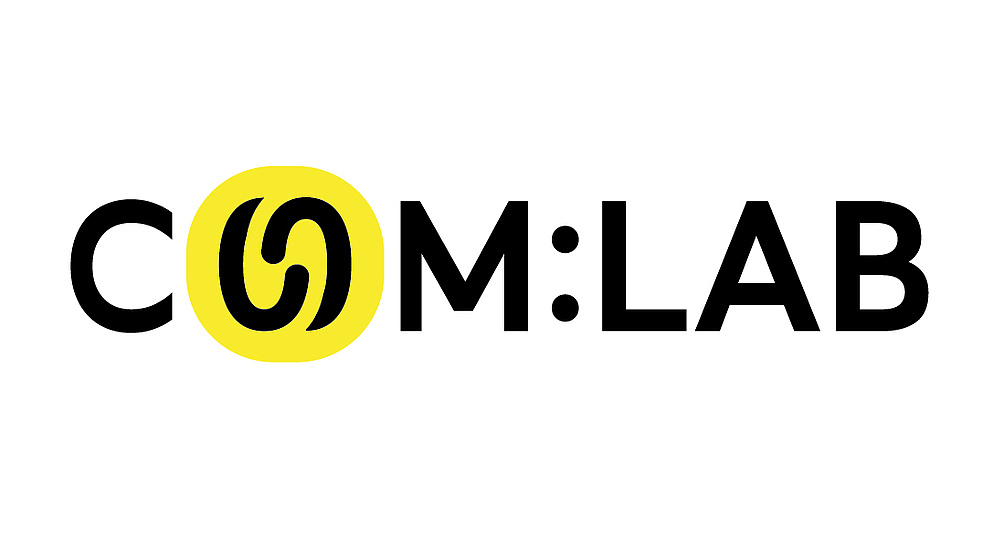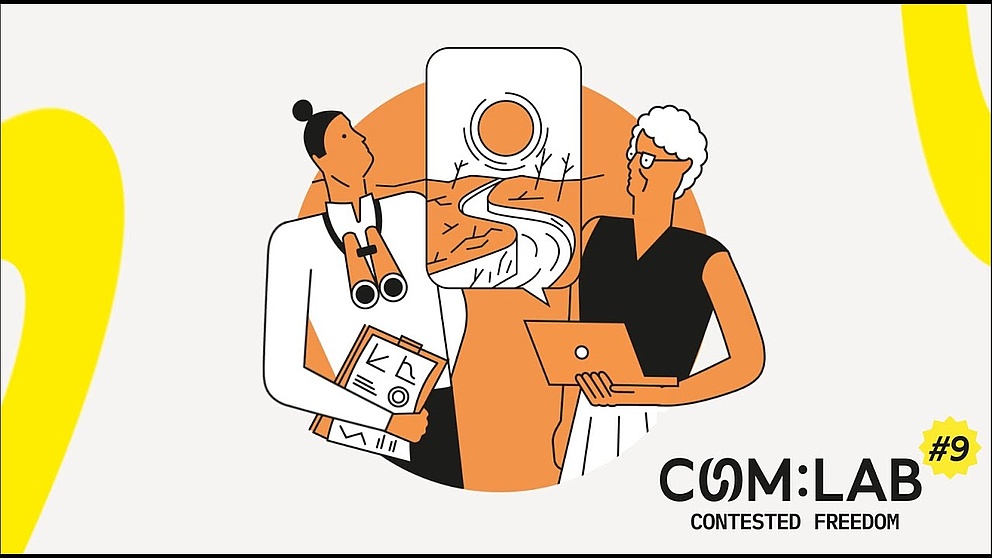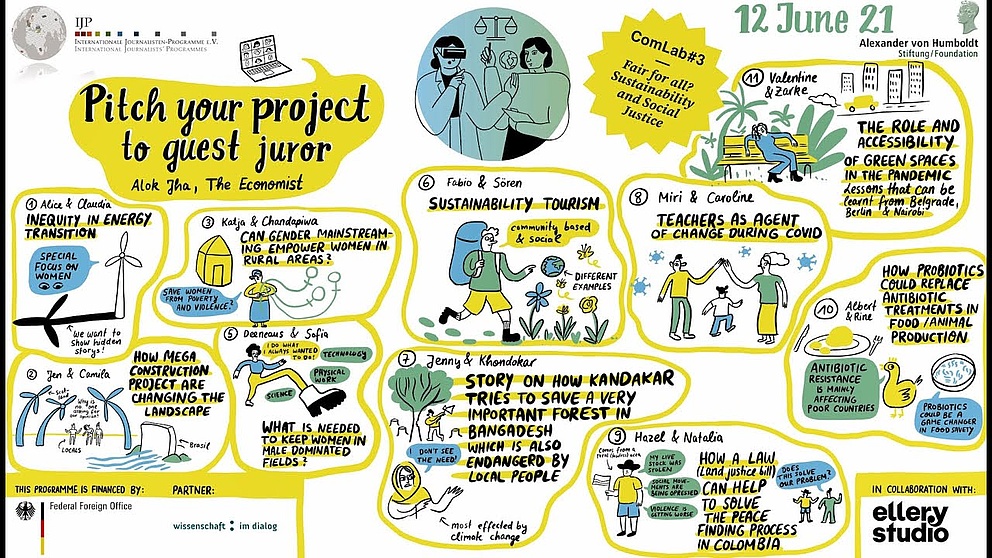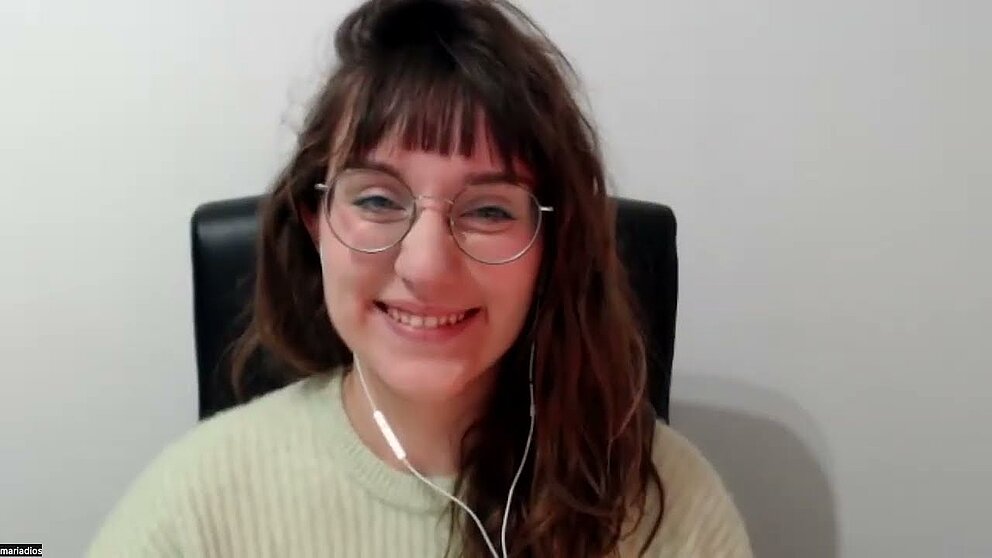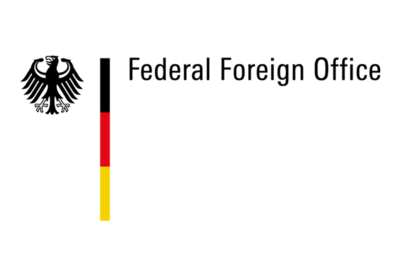Jump to the content
- {{#headlines}}
- {{title}} {{/headlines}}

Contact
Dr Stephanie Siewert
Programme Director
Communication Lab
Alexander von Humboldt Foundation
Berlin Office
Markgrafenstr. 37
10117 Berlin
GERMANY
Communication Lab for Exchange between Research and Media
Each year, fellows of the Humboldt Foundation meet up with alumni of the International Journalists’ Programmes (IJP e.V.). During workshops and training sessions they develop innovative media projects and discuss current issues in society and science. Highly qualified mentors supervise the process. Mutual learning is at the heart of the collaborative work. What expectations do they have of each other? How can science and media work together in a spirit of trust? And what constitutes good science communication from a global perspective?
- Join the ComLab network and be part of a specialist community of science communicators.
- Share ideas with fellow scientists and journalists from all over the world.
- Discuss current global issues with international experts in politics and civil society.
- Learn innovative storytelling techniques from excellent trainers and mentors.
- Work on a compelling piece of science communication based on your own research.
Events and results
The dream, as old as mankind itself: a long and healthy life. New AI-based medical technologies, drugs, and diets could soon make it a reality. However, the desire for longevity and the need for more sustainable living conditions are not only a question of innovation but also hinge on access to resources and knowledge, on social and ethical issues. ComLab#10 offers a platform for exploring new research in health care and medicine, food, urban planning, social sciences, agriculture, and AI that aims at establishing sustainable livelihoods.
All over the world, people take to the streets for their freedom. They protest against war, xenophobia and the climate crisis. In many places they risk their lives for a better, more just society. But “freedom” is a difficult concept and, depending on the respective interests, open to interpretation. ComLab#9 seeks to explore the social, ethical and economic areas of migration, artificial intelligence and the climate crisis where freedom is under threat and develop constructive communication strategies, showcasing unheard narratives.
Welcome to the Future: After three years of digital exchange, it was finally time to meet face-to-face with the ComLab alumni, friends, and supporters of the programme. The Communication Lab – a joint project of the Alexander von Humboldt Foundation and the International Journalists’ Programmes – held its first in-person event and networking carousel in Berlin: ComLab#Live Event in Berlin, 8 September 2023, 1:30 – 8:30 p.m. (CEST)
With new space missions and fast developments in bioengineering, ComLab#7 explored the research that fuelled our expectations in 2023. What are the new frontiers in research and how can or should scientists and journalists tell the story of the next big bang that is already fundamentally happening but has not yet arrived in everyday reality? With the seventh ComLab we looked at the latest scientific revelations whilst also discussing the underlying cultural norms that affect how new research is implemented and perceived in different countries.
Rising oil and grain prices, dwindling wood and water reserves: Current geopolitical developments and climate change are making it increasingly clear how dependent we are on stable resources and reliable trade routes. ComLab#6 examined the following questions: Which ecological, political and economic aspects do we have to take into account when dealing with resource scarcity? What alternatives are available with respect to the cultivation, use and transport of resources that are currently overexploited?
Without sharing ideas and goods around the world, our lives would be much poorer and even endangered. Yet, the pandemic, political upheaval, and resource dependencies pose new challenges to the idea of a collaborative international community. What will the future of globalization look like? What lessons can be learned from the crises of the present? Science and the media can show us innovative approaches and best practices for international cooperation.
Artificial intelligence, robotics and new digital technologies are changing our lives. To which extent, benefit or at which cost is often hard to grasp for regulators and civil society. While transformative technologies hold great potential in medicine, industry, logistics or urban planning, there are hardly any other scientific fields that spark so much speculation. Media and science can help us to distinguish reality from hype or even science fiction.
Sustainable change also means social change. The third Communication Lab therefore addressed the tension between sustainability and social justice; the potential of sustainable innovations and the conflicting goals that (can) ensue in the Global North and the Global South. Science and journalism can help to highlight the social interactions inherent in sustainable transformation. They are also multipliers for forward-looking ideas and best-practice examples of sustainable development.
Climate change is a particular challenge for people all over the world and thus for science communicators, too. The second round of the Communication Lab therefore addressed the European Green Deal and the issues involved in successfully communicating climate change and its impacts. The award-winning projects dealt with the loss of biodiversity, the effects of climate change on indigenous communities and traditional ways of life as well as the role of permafrost in global warming.
In order to enable as many people as possible to access current research findings and enhance their understanding of the way scientists are working during the Corona crisis, effective, well-researched journalism is essential. The first Communication Lab thus focused on the Corona pandemic. The award-winning articles included a biographical reportage on the occupation of a virologist, a children’s book on the way bacteria work, and a reportage on the dangers of zoonoses.
Listen to our ComLab Podcast "Bench Talks – A Conversation between Science and Media"
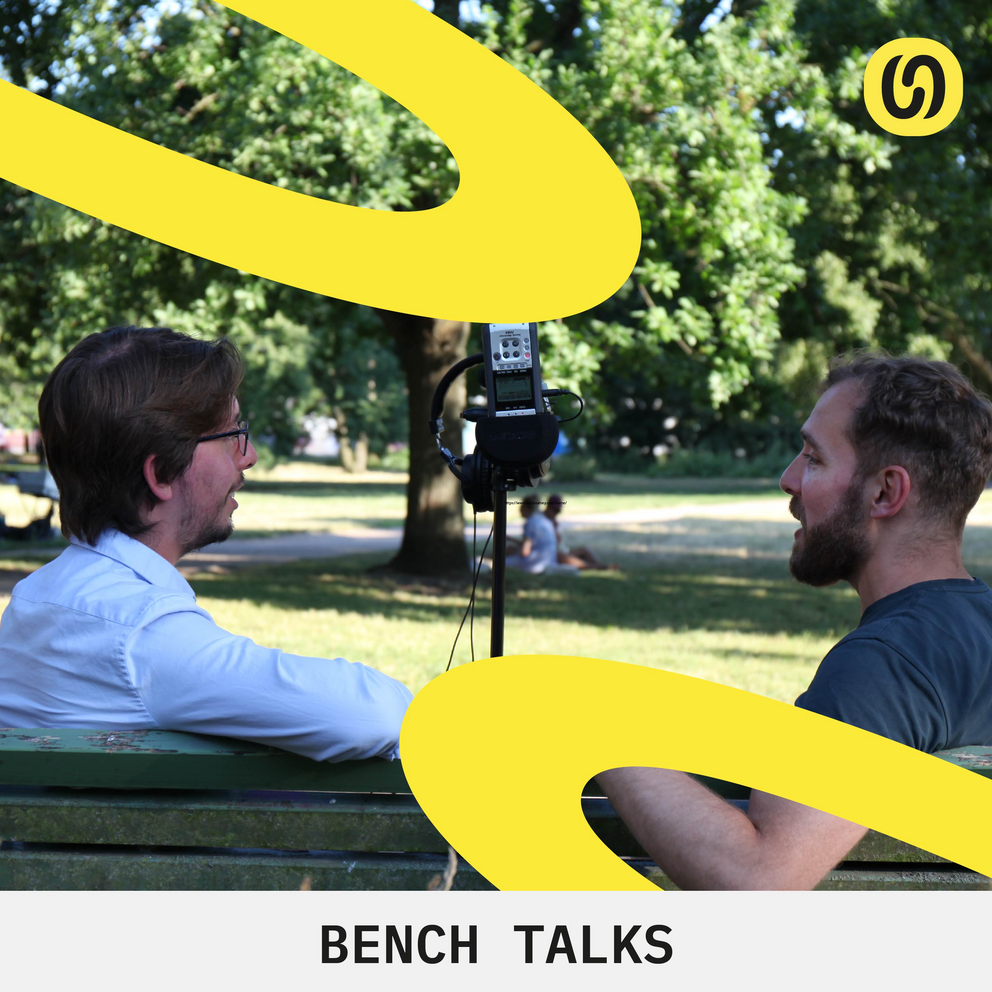
Participants about the ComLab:
Eduardo Queiroz Alves, geochemist, Humboldt Postdoctoral Research Fellow (Brazil)
Being a participant of the last ComLab was a very rewarding experience. It taught me, among other things, how to convey my research to a broad and diverse audience.
Dr Khondokar Kabir, agricultural scientist, Climate Protection Fellow (Bangladesh)
ComLab, to me, is a platform for caring and sharing about your society through the interplay of science and journalism. You should aim to get into ComLab since it will mentally prepare you to be more socially responsible.
Priya Goswami, German Chancellor Fellow (India)
Collaboration is the very fabric of the program. Participants can expect rich first-hand takeaways of learning more about the process of dissemination while also learning about ground-breaking science from their peers. The experience is unique and priceless, not to forget the need of the hour in these times of fake news and yellow journalism.
Alexandra Eul, journalist, IJP alumna (Germany)
The in-depth exchange with such a diverse group of journalists and scientists from all over the world was informative, inspiring and entertaining – and made it clear once again how crucial technology reporting beyond stereotypes is for a better understanding of our present and our future.
Dr Natalia Ruiz Morato, legal scholar, Humboldt Postdoctoral Research Fellow (Colombia)
As a legal scholar working with small farmers and indigenous people, my work needs to have an impact in policymaking. Thanks to Comlab, I learned science is communication as well. You can even rap science! Alexander von Humboldt was a pioneer in science communication, in that spirit, as researchers we must innovate our communication.
Fabio Fornari, tourism researcher, German Chancellor Fellow (Brazil)
ComLab was one of the most exciting and interesting programmes I have ever been part of. The format is truly engaging and gave me the opportunity to learn from experts from all over the world during workshops, as well as working with a great journalist. When I first learned about ComLab I had no idea that just a few months later I would be working alongside an experienced journalist and would see our work together being printed in a real newspaper. As a researcher, this programme has completely changed my perspective and trajectory. It was a deeply impacting experience to be part of ComLab and I definitely recommend it for everyone out there who might be wondering whether they should apply for it. I am very grateful to have been part of this exciting and challenging programme and I hope to see many more ComLabs in the future. Researchers, journalists and the world definitely need more of them!

